Chromebooks are great computers for a lot of different uses, but they are almost tailor-made for education. They're designed to perform well even with modest specs, the software is hard to break, corrupt, or infect, and if a student breaks a laptop, they just need to log in on any other laptop in the school system to get back to work. There are a lot of great options to choose from, but our top pick is the ASUS Chromebook Flip C214.
Best Overall: ASUS Chromebook Flip C214
The ASUS Chromebook Flip C214 is the best Chromebook for students because it provides an excellent experience in a compact, durable package. The 11.6-inch screen is easy to see in a wide array of angles — even in direct Florida sunshine — and the zinc alloy hinge allows you to rotate the screen around 360 degrees into tent or tablet mode as needed. A 2-in-1 Chromebook allows your student to interact with lessons and content however they want: with the keyboard and mouse or directly with the touchscreen.
There's also the option for a C214 with a built-in stylus for those who have problems touching smaller touch targets accurately, a great inclusion. I've adored the usefulness of a stylus for precision tapping in tent/tablet mode and when I'm reading webcomics while eating powdery snacks, which is what I use it for most often.
I have adored the usefulness of a stylus for precision tapping in tent/tablet mode and when I'm reading webcomics while eating powdery snacks.
The C214 lasts about 10 hours on a single charge, meaning it should last the whole school day and some homework before you need to seek out a charger. Like most modern Chromebooks, the C214 uses a 45W Power Delivery charger, meaning even if your kid loses or breaks the in-box charger, you can find a replacement charger easily and affordably.
There are also USB-C ports on each side of the C214, along with one USB-A port and a microSD slot to help expand the 32GB of storage the C214 comes with. The microSD slot on the side of this model is recessed, helping avoid accidental ejection, but the edges are sculpted so that a clothespin edge is the perfect size for inserting and ejecting cards. As a nail-biter, this small joy speaks to the attention to detail ASUS has taken with the rugged, reliable C214.
Yeah, there's only 32GB of internal storage here and only 4GB of RAM, but 4GB of RAM is enough for schoolwork, research, and Twitch streams — I mean homework!! 32GB of storage could get cramped when installing tons of Android apps, but for most elementary and middle-schoolers, it should be more than enough. The corners of the Chromebook have rubberized edges and the outer shell is covered with non-slip textures that are scratch-resistant. The keyboard is spill-resistant and the ports are reinforced, too, so hopefully, it should be able to withstand a few years of chaos with your child.
Pros:
- Exemplary battery life
- Stylus is nice
- Screen is readable in full sun
- Compact and rugged
- Spill-resistant keyboard
Cons:
- Only 32GB storage
- Only 4GB RAM
- Popular and sells out quickly
Best Overall
ASUS Chromebook Flip C214
Rugged, reliable, and ready to pull an all-nighter
With a durable shell and easy-to-read touchscreen, the C214 is a Chromebook great for the classroom and homework.
Best for High School: Lenovo Flex 5 Chromebook
The Lenovo Flex 5 Chromebook is our new pick for the best overall Chromebook because it offers up just about all the features you'd want in a mid-size Chromebook without costing a whole semester's worth of allowance. This laptop is physically less than an inch bigger than the ASUS C214, but it has a much larger 13.3-inch 1080p touchscreen, a backlit keyboard, and nice loud speakers. You also get a more powerful Intel Core processor instead of a Celeron and you get more internal storage for running Linux apps or downloading Disney+ movies for when you're bored in study hall.
To quote Han Solo, "she's got it where it counts, kid".
This laptop hasn't been ruggedized and life-proofed like the C214, but the Lenovo Flex 5 is as perfect for an older kid as it is for many adults. You get a comfortable, evenly-backlit keyboard for late-night procrastinated projects and a pair of big, front-facing speakers on either side to keep the tunes going while they do. The port configuration here is a match to the C214 — two USB-C ports, one USB-A port, a microSD slot, and headphone jack — but you'll need to be more gentle on this laptop if you want it to last you its full eight years of Chrome OS updates.
The battery here should last you a whole school day and homework, and charging it back up shouldn't take too long with the in-box 45W PD charger. Not many families have Wi-Fi 6 routers — and even fewer schools do — but you should still get better Wi-Fi stability with it, and the same can be said of Bluetooth 5.0 for your headphones or Bluetooth mouse.
If there's a downside to the Flex 5 besides it not being kid-proofed, it's that it's a brand-spanking-new model that can be hard to find. If you hurry, you might get one before the term starts, but if you can find it, your high schooler will thank you for it.
Pros
- Crisp 1080p touchscreen
- Loud upward-facing speakers
- Great internal specs
- Backlit keyboard
- Wi-Fi 6 compatibility
Cons
- Not as durable
- Limited availability
Best for High School
Lenovo Chromebook Flex 5
Everything a teen could want
The best Chromebook for everyone is also a great model for middle or highschoolers who don't need a kid-proofed laptop.
Upgrade Pick: ASUS Chrombook Flip C434
There are plenty of powerful Chromebooks out there these days, but the most ultra-powerful Chromebooks tend to sacrifice battery life for raw power that you just don't need most of the time. The Chromebook Flip C434 is powerful enough for my full-time workload, but it can still last all day and look good doing it. With a bright 14-inch screen and premium aluminum housing, this is a machine that's still portable enough to haul every day but big enough for split-screening your research and your paper — or your homework and your favorite Twitch streamer.
The backlit keyboard is great for long nights of cranking out term papers in dimly lit libraries. The m3 processor can keep 20-30 tabs open at a time and handle Linux and Android apps with ease, and while 4GB of RAM was more than enough for the C434 that I used, more RAM is awesome and I'm happy to see the 8GB models more available now than they were last summer.
ASUS does have a newer and beefier model in the ASUS C436, but I still recommend the C434 for students because while the C436 is more powerful, it is also twice the price. Battery life on the C436 is average again — after launching with a bug that hobbled battery life — but I wouldn't trust it to last an entire school day on a single charge. There are still i5 models of the C434 out there to be found, and for lower prices than the C436.
Pros:
- 8GB RAM models available
- Bright, big screen
- Backlit keyboard
- Premium look and feel
- Intel m3 processor
Cons:
- Expensive
- Newer model available
- Not quite as durable
Upgrade Pick
ASUS Chromebook Flip C434
A great Chromebook for college and high school students
Need a bigger screen and a more powerful processor for your work? ASUS has you covered with this premium pick.
Best Chrome Tablet for Education: ASUS Chromebook Tablet
Chrome tablets make a lot of sense for younger students, as they're lighter, easier to grab with smaller hands, and most education models have a stylus for doodling or tapping away at education games. If your child wants to play some games, watch some videos, and do some reading or drawing, a tablet is the best fit, and you can pair it with a Bluetooth keyboard once they're old enough to need more serious typing.
I would love to point you towards the Best Chrome OS tablet on the market today — the 10-inch Lenovo Chromebook Duet — but unfortunately, the Duet doesn't have any heavy-duty cases available at the moment and it's not ruggedized enough to withstand the abuse a younger student would inflict upon it. Thankfully, there are several affordable Chromebook tablets designed specifically for the classroom and younger students. I like the ASUS Chromebook Tablet because it comes with a stylus and is a more well-known brand with a better legacy of support.
It only comes with one USB-C port and no USB-A ports, not that a younger child will need to use those often, but you still have a headphone jack and a microSD slot for expanding the 32GB of internal storage, two features that the Lenovo Duet lacks. It's not the most powerful Chromebook device around, but it's the perfect level for younger grade-schoolers, and the extensive durability standards that ASUS holds it to ensure that it should hold up to the chaos of a younger user so long as they show it a basic level of care.
Pros:
- Includes a stylus
- MIL-spec durability
- Good match for younger users
- Expandable storage
Cons:
- Only one USB-C port
- Modest specs
- Expensive for what it is
Best Chrome Tablet for Education
ASUS Chromebook Tablet
Great for doodling, reading, and watching.
For younger users that aren't typing much, this tablet is perfect easing children into Chrome OS.
Best Value: Lenovo Chromebook C340 (11.6")
The Lenovo Chromebook C340 (also known as the C340-11) was our overall best Chromebooks for a while — and is still our favorite compact Chromebook. It features the same processor and RAM as our overall pick, the ASUS C214, and it even has the option for 64GB of storage, which is great news for older students who will be installing a lot of apps or downloading music and movies for offline viewing.
If you can deal with this Chromebook not being child-proofed the way the more education-focused models are, the C340-11 can be a great way to get a dependable, long-lasting Chromebook without blowing your budget.
This has been my primary computer for months now, and whether I'm trying to bang out a quick case collection on the couch or writing one of my editorials in the shade at Epcot, this little darling never lets me down. The battery will last all day unless you're always on max brightness — and even then, you'll usually get six hours — and while it's not rubberized or ruggedized, it'll take daily wear and tear in stride.
This Chromebook has proven very, very popular: Amazon can barely keep it in stock — especially the alluring Sand Pink version — and most other retailers regularly sell out, as well. If you can find a C340-11, especially a 64GB model, don't wait too long: blink and they'll be gone.
Pros:
- Prettier look with two color options
- 64GB storage options
- Up to 10-hour battery life
- Great price
- Great internal specs
Cons:
- Not as durable
- Not as grippy
- Sells out frequently
Best Value
Lenovo Chromebook C340 (11.6")
It's not as durable, but pretty and affordable.
With double the USB ports and 8GB models on the horizon, Lenovo's aluminum-lidded laptop is more than a pretty face.
Honorable Mention: Dell Chromebook 3100 2-in-1
Dell — like Lenovo and Acer — debuted an upgraded line of Education Chromebooks early this year, the clamshell Chromebook 3100 Education, a Chromebook 3100 2-in-1, and the 14-inch 3400. While the 3400's larger screen is nice, non-touch Chromebooks are a nonstarter in 2020, but the 3100 2-in-1 ticks almost all the boxes we like to see in a Chromebook and does it without going too far overboard in the pricing department.
The 3100 2-in-1 has two USB-A and USB-C ports — one on each side — as well as a microSD slot and headphone jack. While the extra USB-A port isn't necessary, spares are always appreciated when they can fit in basically the same size chassis. There's no stylus option here, which is a bummer, but performance is decent and there is an 8GB RAM configuration and a 64GB storage configuration. Oddly, you'll have to pick one or the other; you can't get a configuration with both. I vote for getting 8GB of RAM, but if you download a lot of offline files/movies, the extra internal storage can be helpful.
While you can indeed save a few dollars opting for the clamshell version, I recommend most users get a 2-in-1 Chromebook and for studious children, a 2-in-1 is darn near required. Tablet mode is great for using away from classroom desks or in the car, and tent mode turns the 3100 into a digital art easel. It's absolutely worth the extra cash.
However, there's an Achilles' heel with the Dell 3100 line: you can't buy it right now. Dell will let you put in a purchase order and get on the list, but delivery dates for both the 2-in-1 and clamshell models are slated for January right now, meaning that your child would be without it for the entire fall semester.
Pros:
- MIL-spec durability and spill resistance
- Plenty of USB-A and C ports
- 8GB RAM and 64GB storage options
- Chrome updates until June 2025
Cons:
- No delivery dates for months
- No stylus
- More expensive
Honorable Mention
Dell Chromebook 3100 2-in-1
Made for the real world, but priced above the classroom
While you can get higher memory/storage than the C214, the base model starts at a higher price, but you'll get a quality device.
Bottom line
When picking a Chromebook for your child or your studies, you may be tempted to go with a non-touch model, but fight this urge! Touchscreen Chromebooks are more expensive, but are far easier to interact with, especially for students that may be playing educational games or using artistic apps to doodle away the boredom. Styluses like the one on the ASUS Chromebook Flip C214 are great for art apps — and for people who tend to fat-finger their touch targets as I do — but it's alright to skip it if you don't think you need one.
The C214 can be a little hard to come by right now — honestly, most good Chromebooks are hard to find right now without price gouging — and if you can't find the C214, I highly recommend both the Lenovo Flex 5 and Lenovo C340-11 for older and younger students respectively. Between school distracts clamoring for more Chromebooks and parents scrambling for laptops for their kids, 2020 has made Chromebooks a hot commodity, especially education Chromebooks that are built to endure abuse.
11.6 inches is the standard size for Chromebooks — education and regular — because it's small enough to be easily portable while still being big enough to get your work done on. While 13-14 inch laptops make sense for teachers that stay in one room most of the day, for students lugging laptops between periods, smaller and lighter is better. Quality 14-inch touchscreen Chromebooks will also strain your wallet, but if you want something larger than a standard notebook, head on over to our Best Chromebooks guide for those recommendations.
Why use a Chromebook in the classroom?
There are several reasons so many schools use Chromebooks in the classroom, and each one is just as important as the next.
- Powered by Google — Google is a household name when it comes to technology and school districts know the company will be around to offer support for the life of the product.
- Ease of use — Chrome OS is a lightweight system that's easy to find your way around, even for younger users and parents that aren't tech-savvy.
- Security and administration tools — Chrome OS is designed with security at the forefront (since Chromebooks are also aimed at the Enterprise space), and a G Suite administrator can lock things down to meet the needs of a school system's IT policies.
- Price — Chromebooks designed for classroom use can be bought in bulk for hundreds of dollars less than other devices like iPads and Windows laptops.
- Parents can provide a Chromebook, too Because they are inexpensive and easy to use, parents can provide a Chromebook for a child who isn't in a 1:1 school program or during the summer recess.
School systems are notoriously cash-strapped and understaffed, yet they have the responsibility of shaping the next generation through their formative years and beyond. School officials have told me that this can be the most frustrating part of their job because sometimes they can't provide teachers and other hands-on educators with the tools they need to teach our children. Because Chromebooks are inexpensive to buy and support, they are a welcome option for frustrated, underfunded school districts.
In the classroom itself, Chromebooks provide a gateway to everything a student needs to learn, and everything a teacher needs to guide them. Little things a consumer may take for granted, like automatic updates and the ability to sign in to any device and have your profile available mean more time can be dedicated to studies instead of administration.
Chromebooks are designed to be used with Google's educational suite of applications.
Chromebooks also work seamlessly with Google's educational software: Google Classroom, G Suite for Education, and even Google's consumer applications like Gmail or Google Keep. With these apps and services, students and teachers can work online or offline, seamlessly syncing with Google's servers.
It's very difficult to tell you're working with an app that stores its data in the cloud because the experience is so good, but you'll know it did when you pick up a completely different Chromebook and everything is just as you left it. This is great for students, allowing them to get back to work after they spill water all over their Chromebook and have to be issued a new one.
Chromebooks and Google's educational application suite are simple to use, well integrated into inexpensive Chromebooks, and are the perfect foundation for education.
What's special about an educational Chromebook?
You'll see a lot of Chromebooks out there branded as being Chromebooks for Education, and you may be wondering what exactly the difference is between an Education Chromebook and a regular one.
Really, to normal buyers, there isn't one, at least from a hardware standpoint.
Any Chromebook can be used in the classroom and still have access to Google's educational suite and work, communicate and collaborate with other students and teachers, just as soon as you log into it. What is different is the support contract. School districts that purchase through education channels can also contract various levels of support from the company that made the Chromebooks or through Google itself, such as on-site service and having a Google specialist help students and teachers get started in person.
Education Chromebooks all have one thing in common: they're tough.
Education-focused Chromebooks models are often built with an eye on durability. You'll find thick polycarbonate shells and rubber bumpers to withstand bumps and falls, MIL-SPEC approval for survivability in the elements, and even special features like microbe-resistant screens to cut down on spreading germs from student to student or waterproof keyboard pans — kids are messy, after all.
Google does have some standards a Chromebook must adhere to for the educational certification, but they are common-sense requirements that almost all Chromebooks follow. Ever wonder why a Chromebook has lower-case letters on the keyboard instead of capital letters like most other keyboards? That's part of Google's requirements. For a small child learning how to read and type, a key must be marked with what it will print on the screen when pressed. Ingenious!
Credits — The team that worked on this guide
![]()
Ara Wagoner themes phones and pokes YouTube Music with a stick. When she's not writing help and how-to's, she's running around Walt Disney World with a Chromebook. You can follow her on Twitter at @arawagco. If you see her without headphones, RUN.
![]()
Jerry Hildenbrand is Mobile Nation's Senior Editor and works from a Chromebook full time. Currently, he is using Google's Pixelbook but is always looking at new products and may have any Chromebook in his hands at any time. You'll find him across the Mobile Nations network and you can hit him up on Twitter if you want to say hey.
from Android Central - Android Forums, News, Reviews, Help and Android Wallpapers https://ift.tt/2sy9XYd
via IFTTT

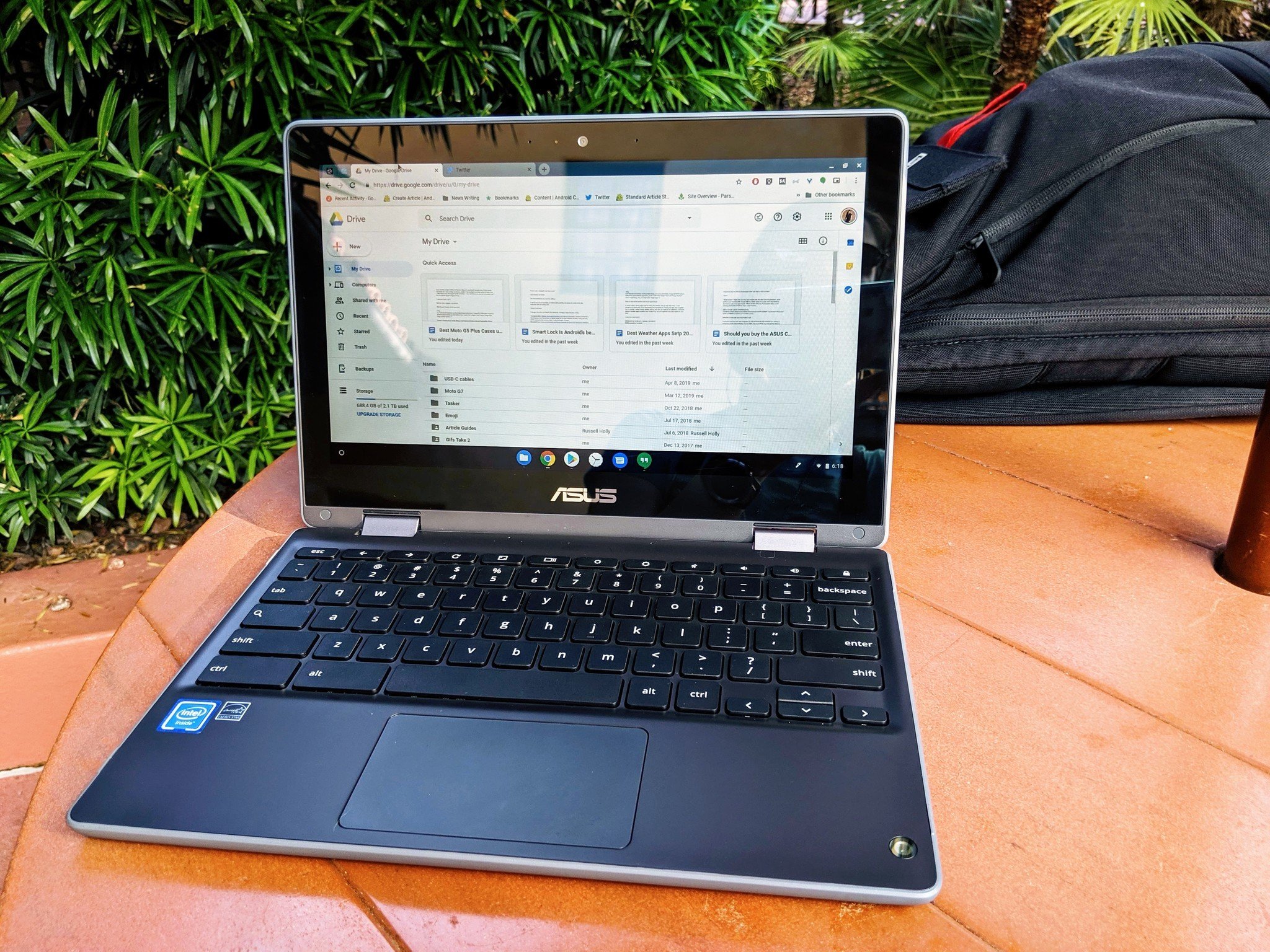
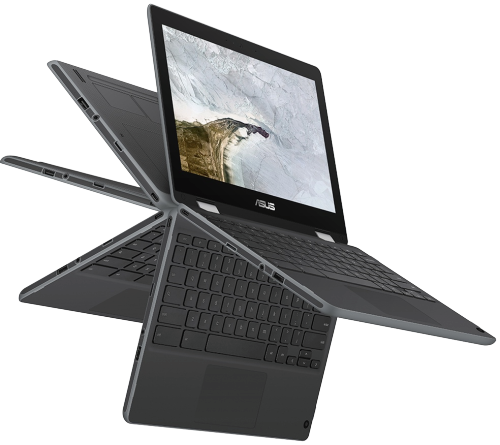
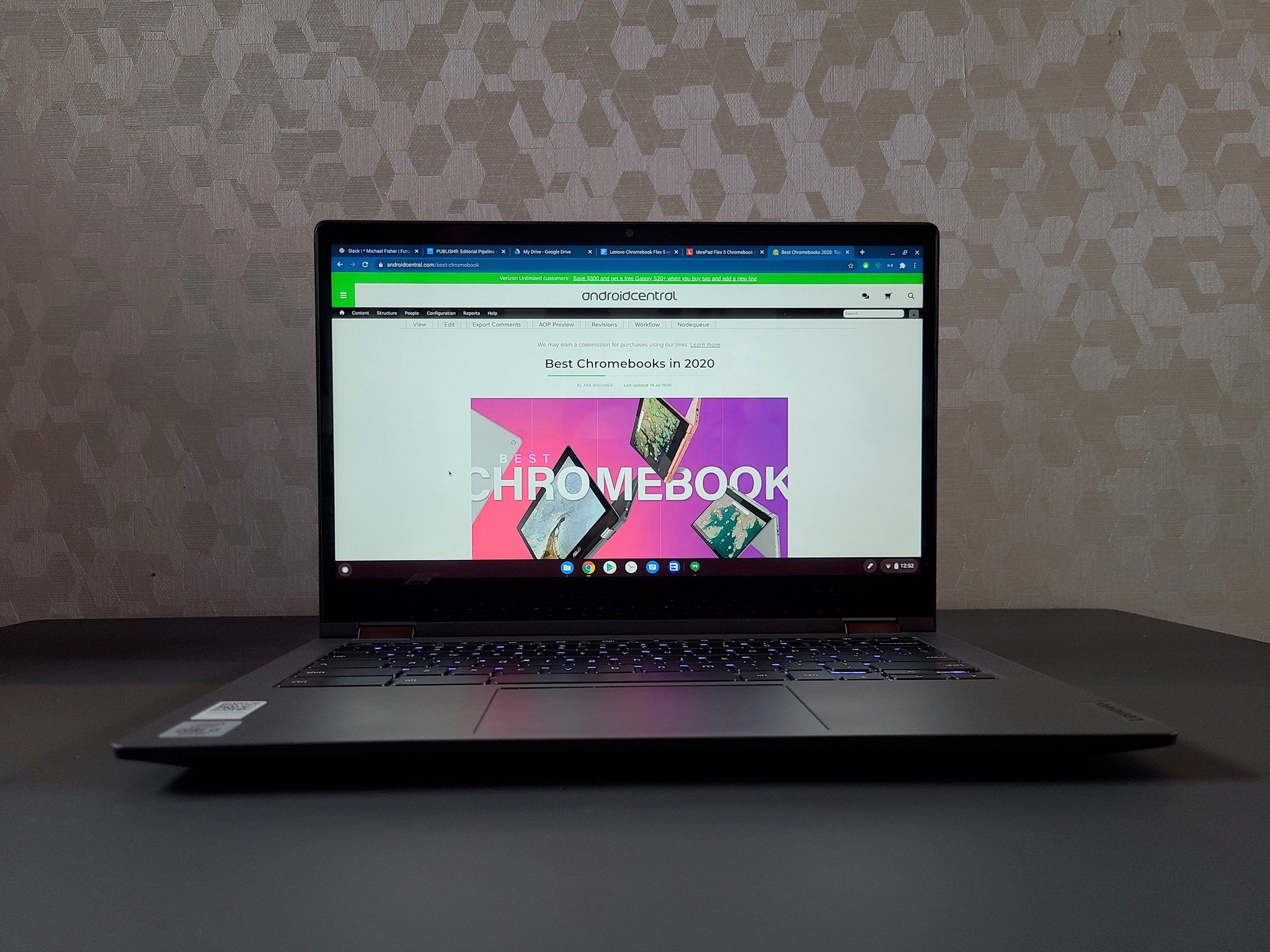

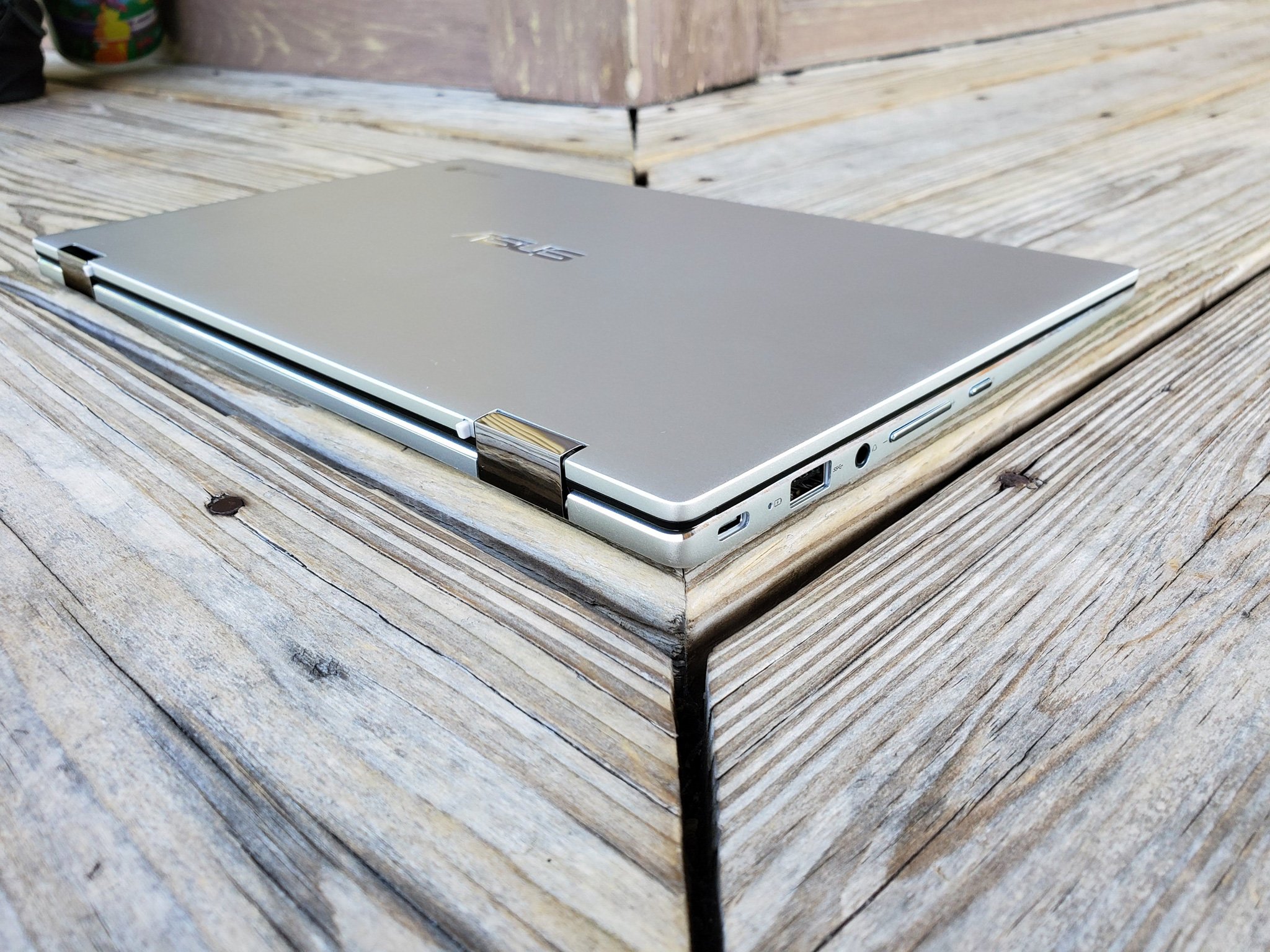

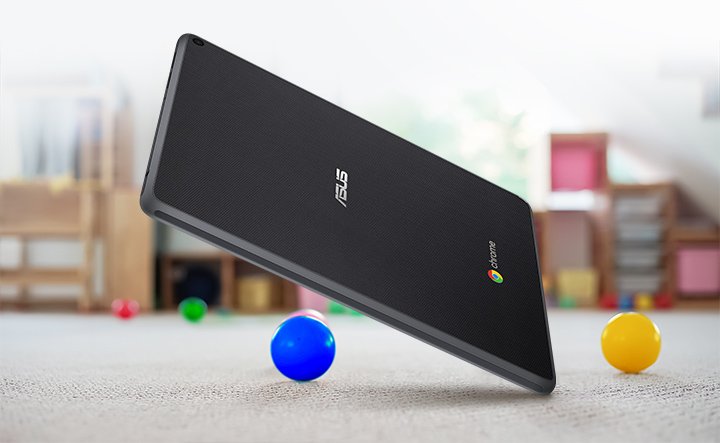
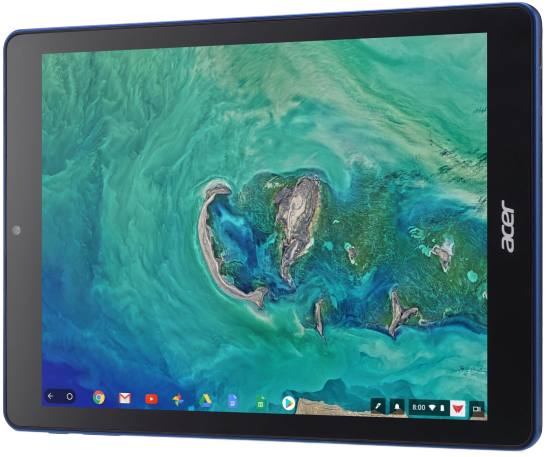

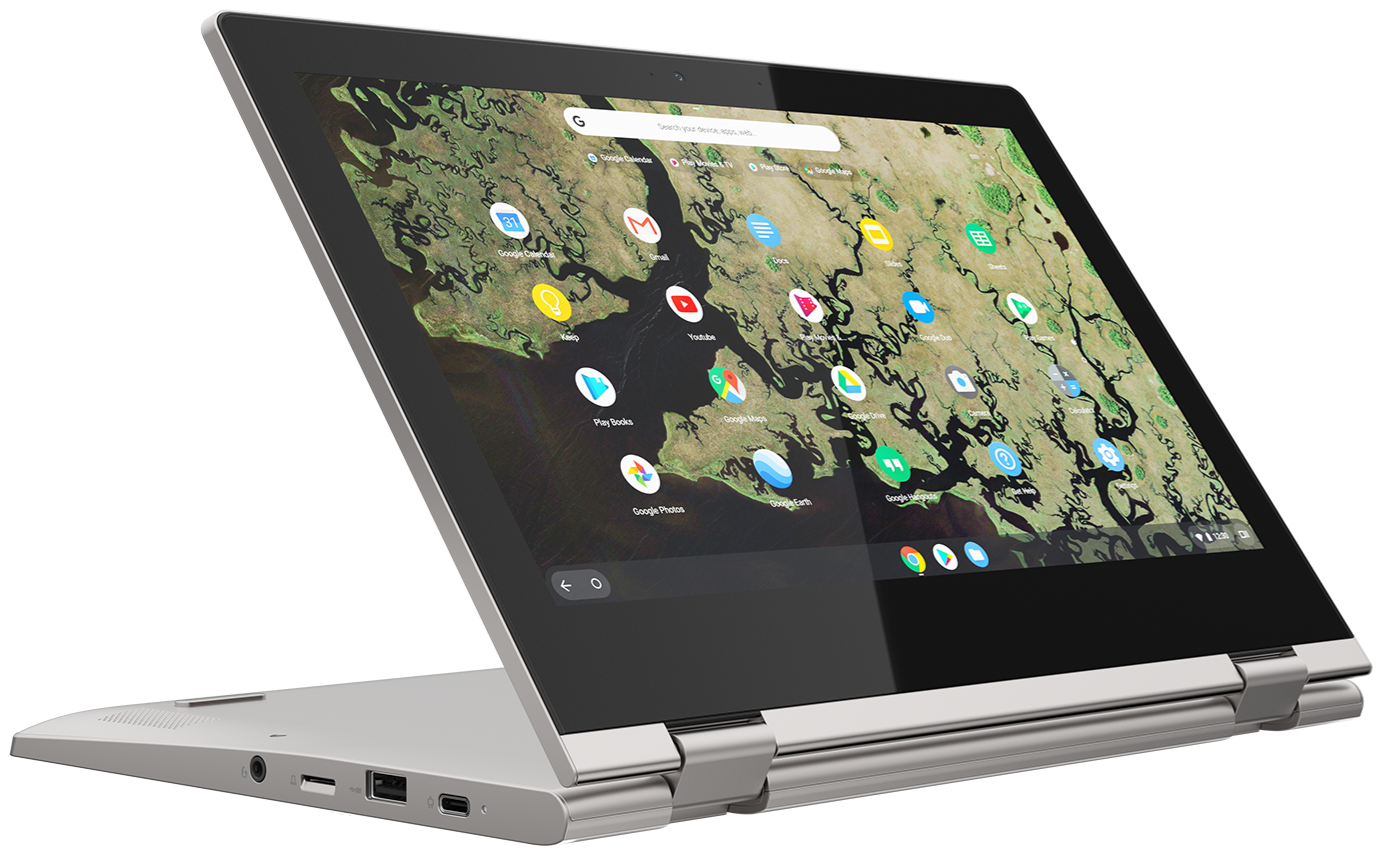
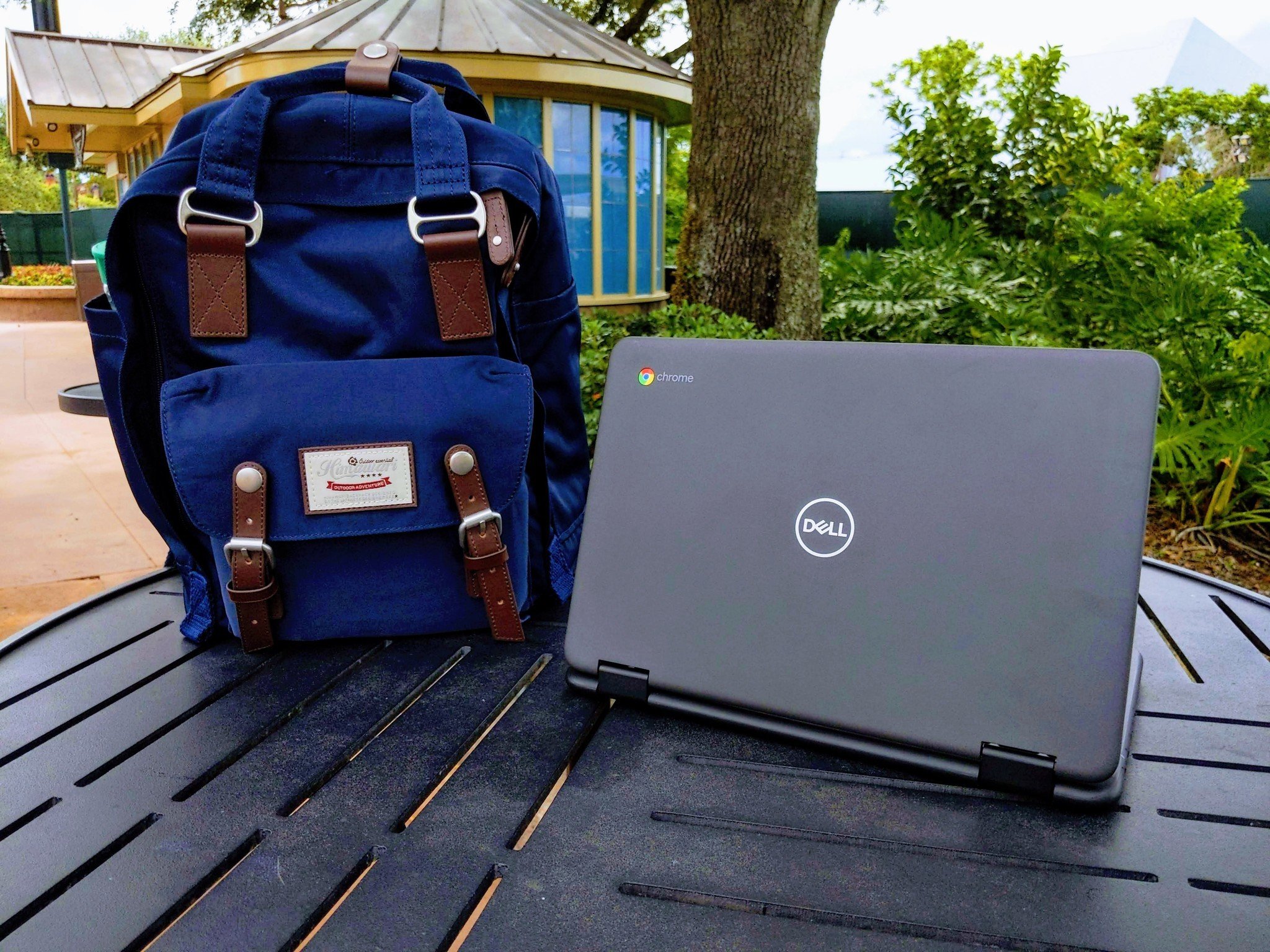
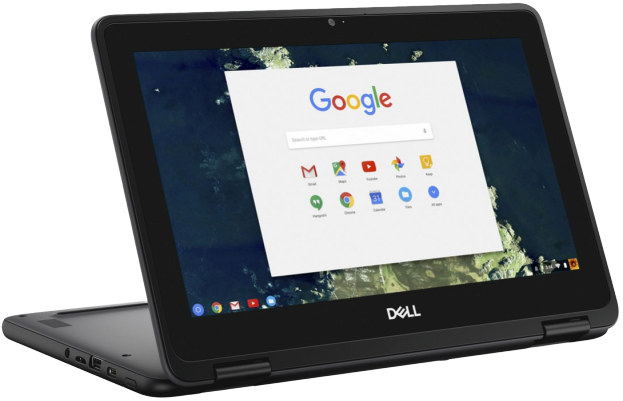
No comments:
Post a Comment